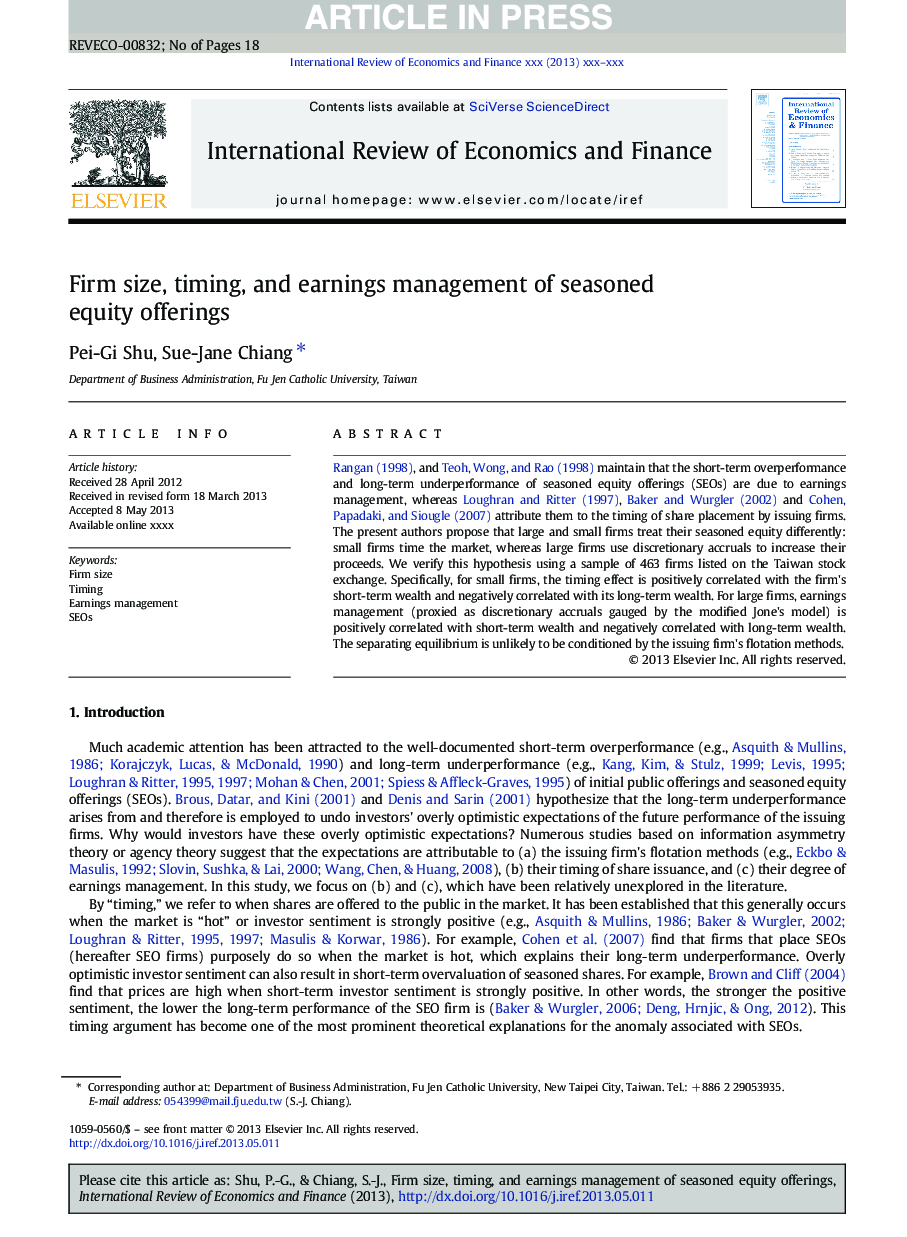| Article ID | Journal | Published Year | Pages | File Type |
|---|---|---|---|---|
| 5083657 | International Review of Economics & Finance | 2014 | 18 Pages |
Abstract
Rangan (1998), and Teoh, Wong, and Rao (1998) maintain that the short-term overperformance and long-term underperformance of seasoned equity offerings (SEOs) are due to earnings management, whereas Loughran and Ritter (1997), Baker and Wurgler (2002) and Cohen, Papadaki, and Siougle (2007) attribute them to the timing of share placement by issuing firms. The present authors propose that large and small firms treat their seasoned equity differently: small firms time the market, whereas large firms use discretionary accruals to increase their proceeds. We verify this hypothesis using a sample of 463 firms listed on the Taiwan stock exchange. Specifically, for small firms, the timing effect is positively correlated with the firm's short-term wealth and negatively correlated with its long-term wealth. For large firms, earnings management (proxied as discretionary accruals gauged by the modified Jone's model) is positively correlated with short-term wealth and negatively correlated with long-term wealth. The separating equilibrium is unlikely to be conditioned by the issuing firm's flotation methods.
Related Topics
Social Sciences and Humanities
Economics, Econometrics and Finance
Economics and Econometrics
Authors
Pei-Gi Shu, Sue-Jane Chiang,
